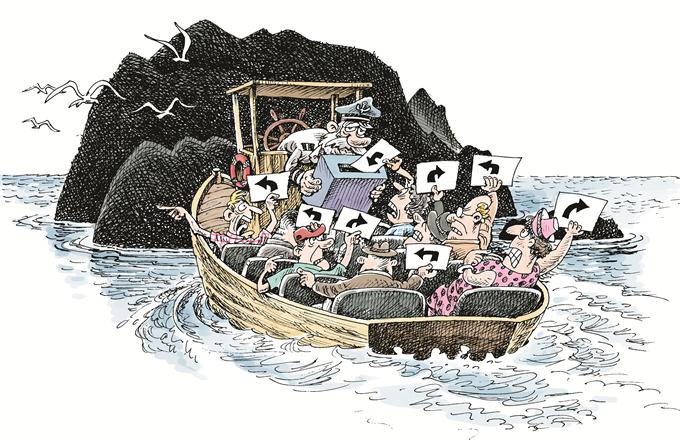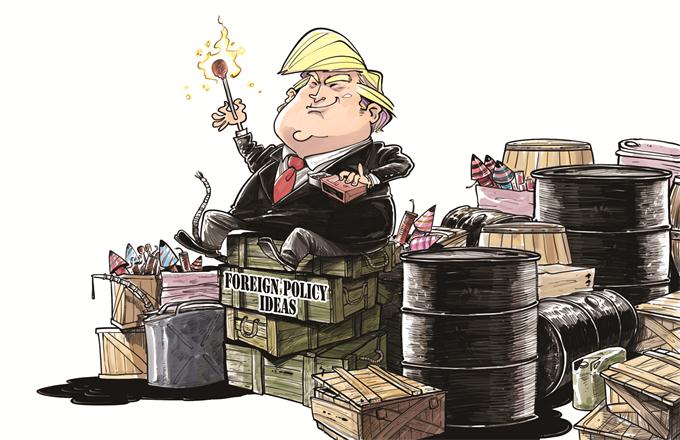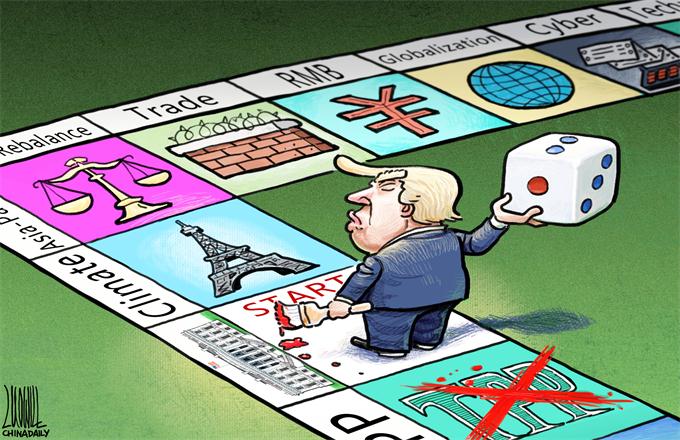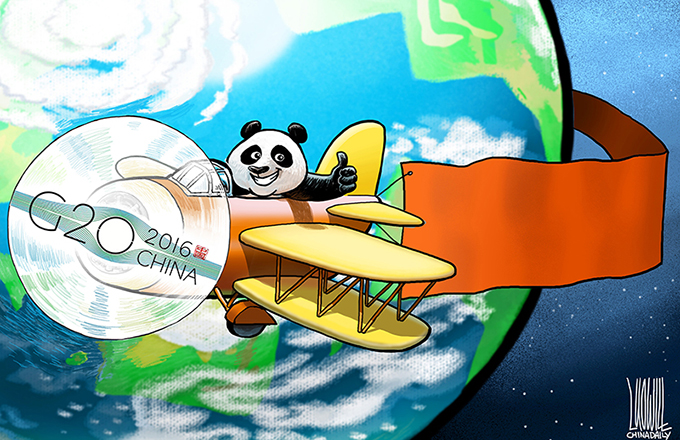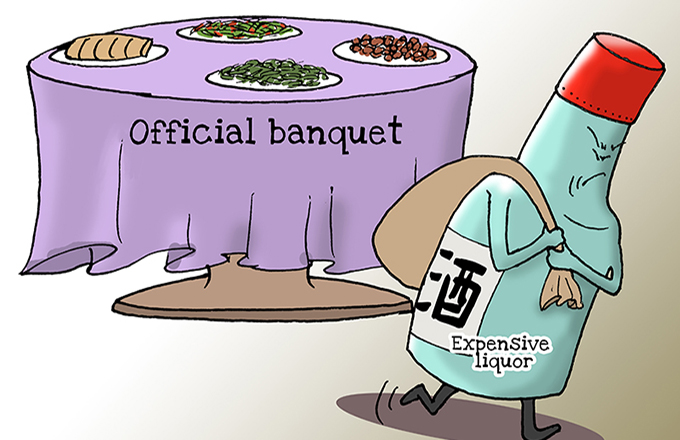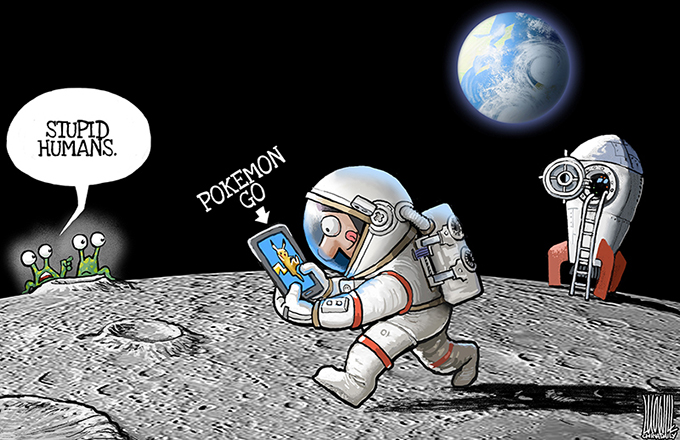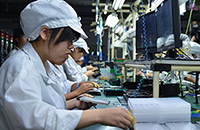Trump's accusation belies true state of trade ties
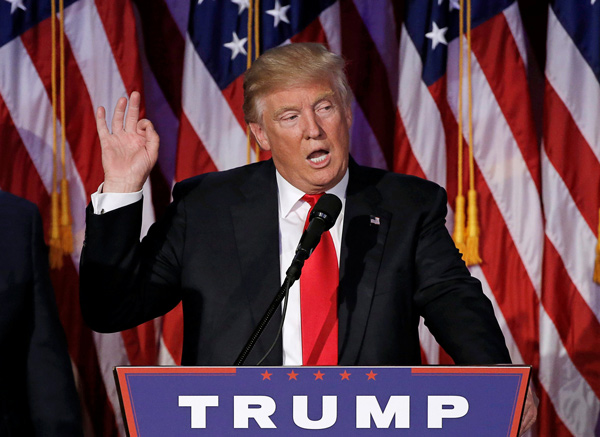 |
|
US President-elect Donald Trump speaks at election night rally in Manhattan, New York, US, November 9, 2016. [Photo/Agencies] |
US president-elect Donald Trump is usually described as a pragmatic and successful businessman-a man who knows how to cut a deal to his own advantage.
So it has been strange to hear him say that he wants to use the US' continued observance of the one-China principle regarding Taiwan as a bargaining chip in trade talks with Beijing, because that has no leverage. Taiwan is part of China no matter what he says.
However, since he has indicated with his pre-office sound bites that his real interest is trade, let's talk about trade.
Despite their occasional downs, bilateral relations have come a long way on an upward trend since China began its ongoing opening-up.
Now, as the world's two largest economies and each other's biggest trading partners, China and the United States have developed a "symbiotic relationship", achieving a trade volume of nearly $600 billion last year.
Still, Trump likes to claim that China is not playing fair in its economic competition with the US, and even cries out this is "killing" the US economy.
Soon after his "I was just being polite" phone call with Taiwan leader Tsai Ing-wen that had actually been long in the planning, he raised his now familiar accusation that China imposes heavy taxes on US imports which the US does not do on Chinese goods.
Like so much of what he says, this stretches the facts in a direction that is at odds with the truth.
China abides by World Trade Organization rules and adheres to its bilateral and multilateral trade and tariff agreements.
To put the two countries trade relations into some kind of perspective, General Motors saw more than one-third of its 9.96 million vehicles sold globally bought by Chinese customers last year, while 1 out of every 3 cars produced in North America uses parts and components made by Wanxiang, a Chinese-funded company that employs 12,500 people in the US.
History proves what is good for Sino-US relations is good for their economies.
Being a competitive personality, Trump seems to be seeking to gain an upper hand in what is essentially a win-win relationship with all his irrational remarks about China.
For the American economy to be great again, as Trump sold his presidential bid to voters, the US needs to cement its economic relations with China, rather than destroy them.




